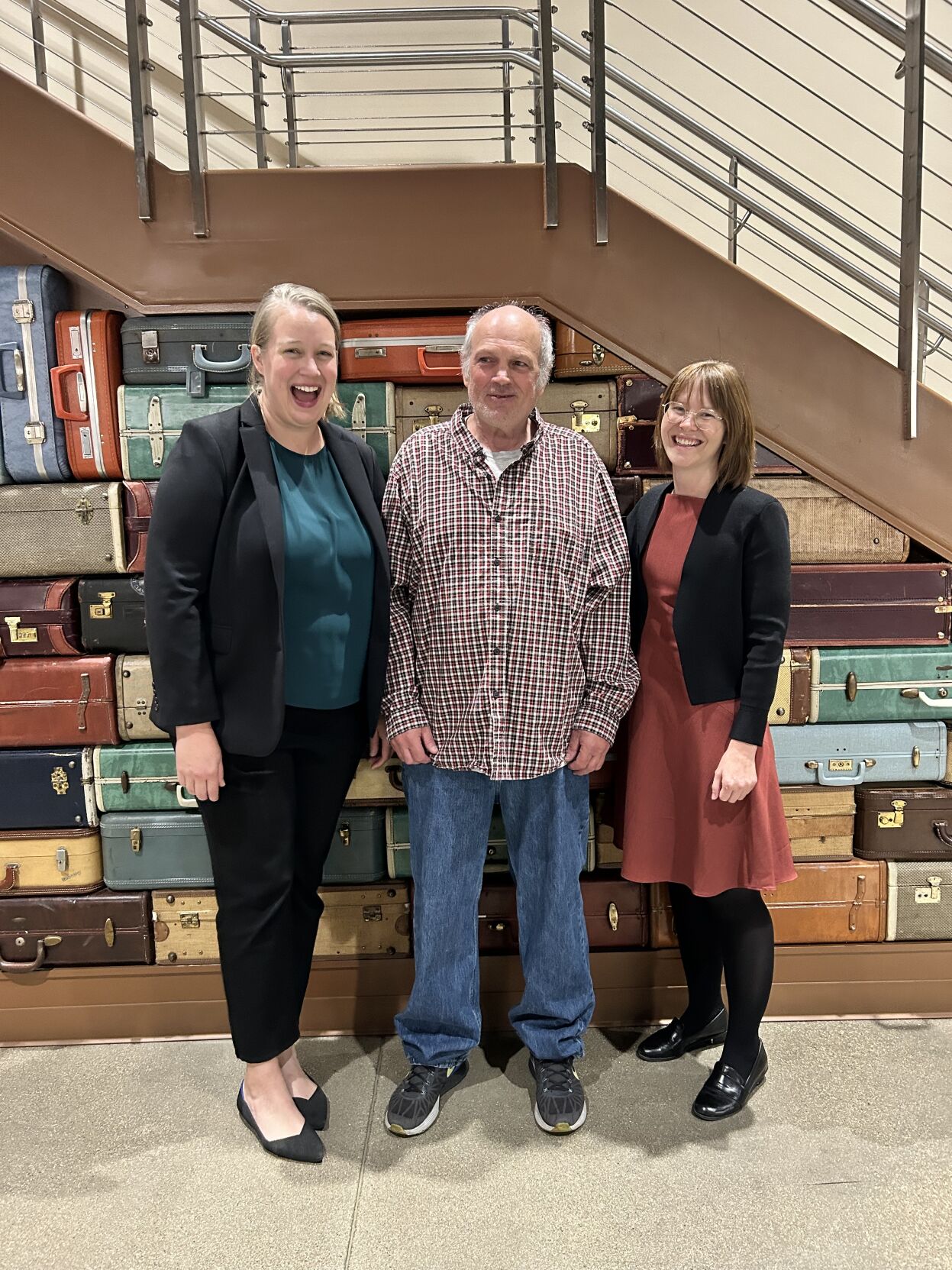After serving 25 years in prison for a crime he didn’t commit, David Bintz walked out of a Wisconsin prison a free man last fall.
Bintz was sentenced to life behind bars for the killing of Sandra Lison, who was found dead in 1987 in a state forest north of Green Bay. During the last couple of years, DNA testing cleared Bintz of the crime and identified the actual perpetrator.
The Wisconsin Innocence Project, which worked on Bintz’s case for years, recently received a $1.5 million grant from the U.S. Department of Justice, marking the largest award in the project’s history. Rachel Burg, the project’s co-director, said she hopes the federal funding will help free other wrongfully convicted people.
Founded in 1998, the Wisconsin Innocence Project is a law clinic at the University of Wisconsin-Madison’s law school. Students and staff work to exonerate Wisconsinites who claim innocence in primarily serious cases, such as sexual assault and homicide, Burg said.
With the federal grant, Burg and others plan to look at the project’s old cases and see if newer types of DNA technology can make a difference — like in Bintz’s case.
“There were cases that we closed out at that time that weren’t successful, not because of the merit of their innocence claim, but rather because the DNA testing at the time wasn’t sensitive enough,” Burg said.
The team identified 20 priority cases to start with and Burg estimated there are about 100 cases that may fit the parameters of the grant. Burg welcomes the chance to reconnect with people who the project developed deep, meaningful relationships with decades ago.
“It’s hard to close the door on a case. … The ability to actually reopen the case with really fresh technology and the funding and capacity to do so is really exciting for us, and hopefully we can see some results from it,” Burg said.
Given the racial disparities in Wisconsin’s legal system, the project will focus on Black, Latinx and Native American people in its review, Burg said. Black people are imprisoned at rates nearly 12 times higher than white people in the state, according to a 2023 report from the Wisconsin Policy Forum.
“We know from our own work, and from studies that have been done as well, that those disparities trickle down ... into wrongful convictions,” Burg said.
The project will also work with clients, communities and Wisconsin organizations to overcome barriers that people face in the criminal legal system, including access to lawyers, re-entry into society and state limits in financial compensation for wrongful convictions.
DNA testing can be expensive, tricky
The Wisconsin Innocence Project has two full-time employees on staff. Burg said the new federal funding will allow the organization to hire three additional people and work with more students.

David Bintz is pictured with with his lawyers, Rachel Burg, left, and Zoe Engberg, right. The Wisconsin Innocence Project worked to release Bintz from prison in September after he was wrongfully incarcerated for 25 years.
The grant will also help pay for DNA testing. Burg said testing typically costs around $20,000 to $30,000, and she’s seen cases where testing cost closer to $50,000.
“In a lot of our cases, half the battle is making sure evidence still exists. We’re talking about cases from the ’80s, from the ’90s, and the preservation of that evidence from way back then is sometimes questionable,” Burg said.
The project is always thinking about when is the right time to do different kinds of testing, Burg said. Should they test now, so their clients don’t spend more unnecessary time in prison? Or is it better to wait for new DNA technology that’s expected to be available soon?
“Trying to figure out that balance is definitely tricky,” Burg said.
When DNA testing grew in popularity during the 1980s, authorities primarily used the technology for fluids found at crime scenes, such as blood and saliva, that provided evidence of a single perpetrator, Burg said.
Advancements in recent decades have led to touch DNA testing, where skin cells are lifted from items, she said. Testing can also now discern mixtures of DNA, like when multiple people touch a weapon, to suss out which DNA belongs to which person.
“One of the other things that’s really interesting right now is forensic genetic genealogy, or investigative genetic genealogy, which is a really rapidly developing area, which is what we used in David Bintz’s case to establish who the actual perpetrator was of that crime,” Burg said.
The project has helped release more than 30 wrongfully-convicted people so far. Two months after Bintz’s release in September, Manuel Cucuta was freed in November when a Milwaukee County judge vacated his life sentence for a double murder.
Cucuta had served 27 years in prison after being convicted as a teenager.







